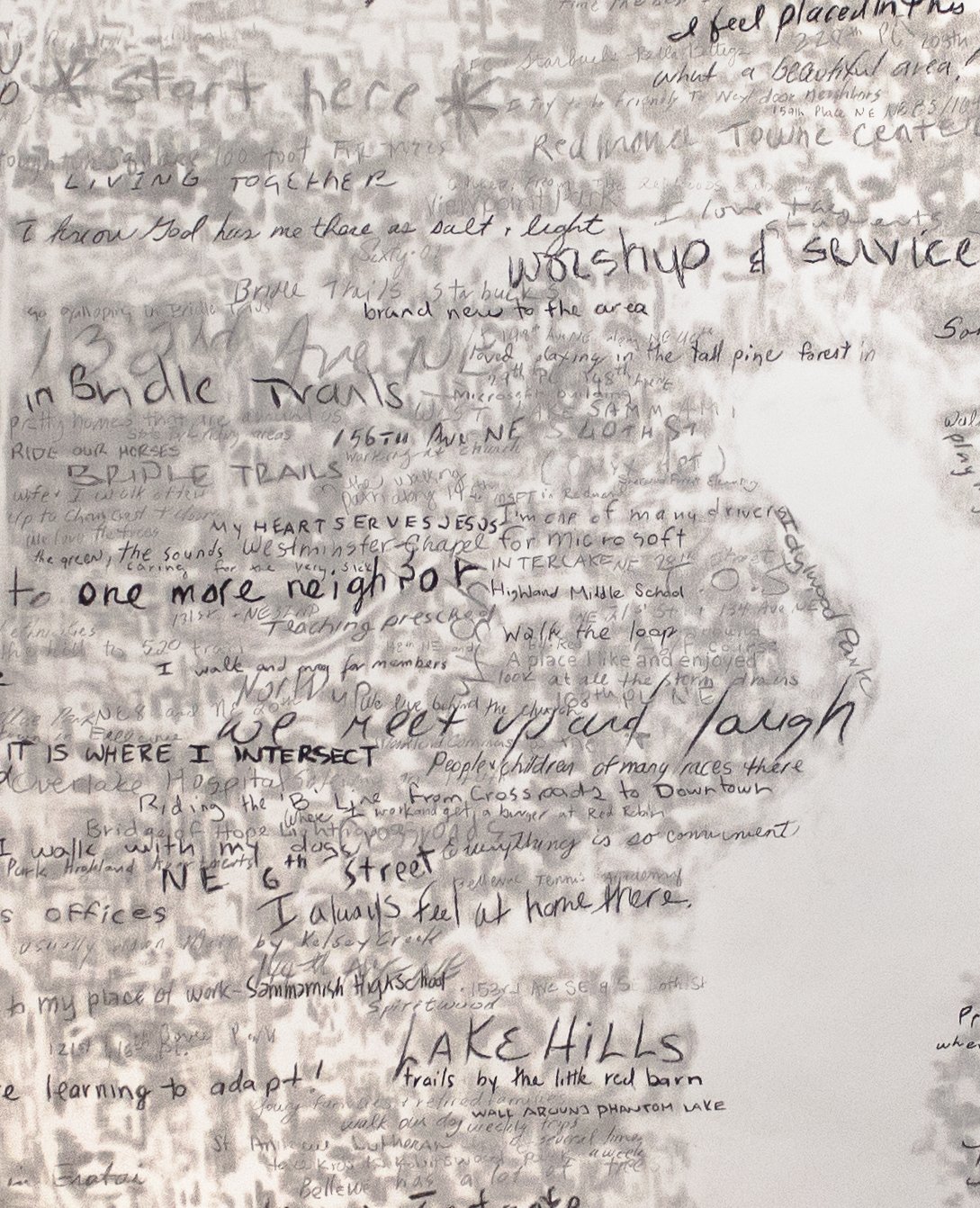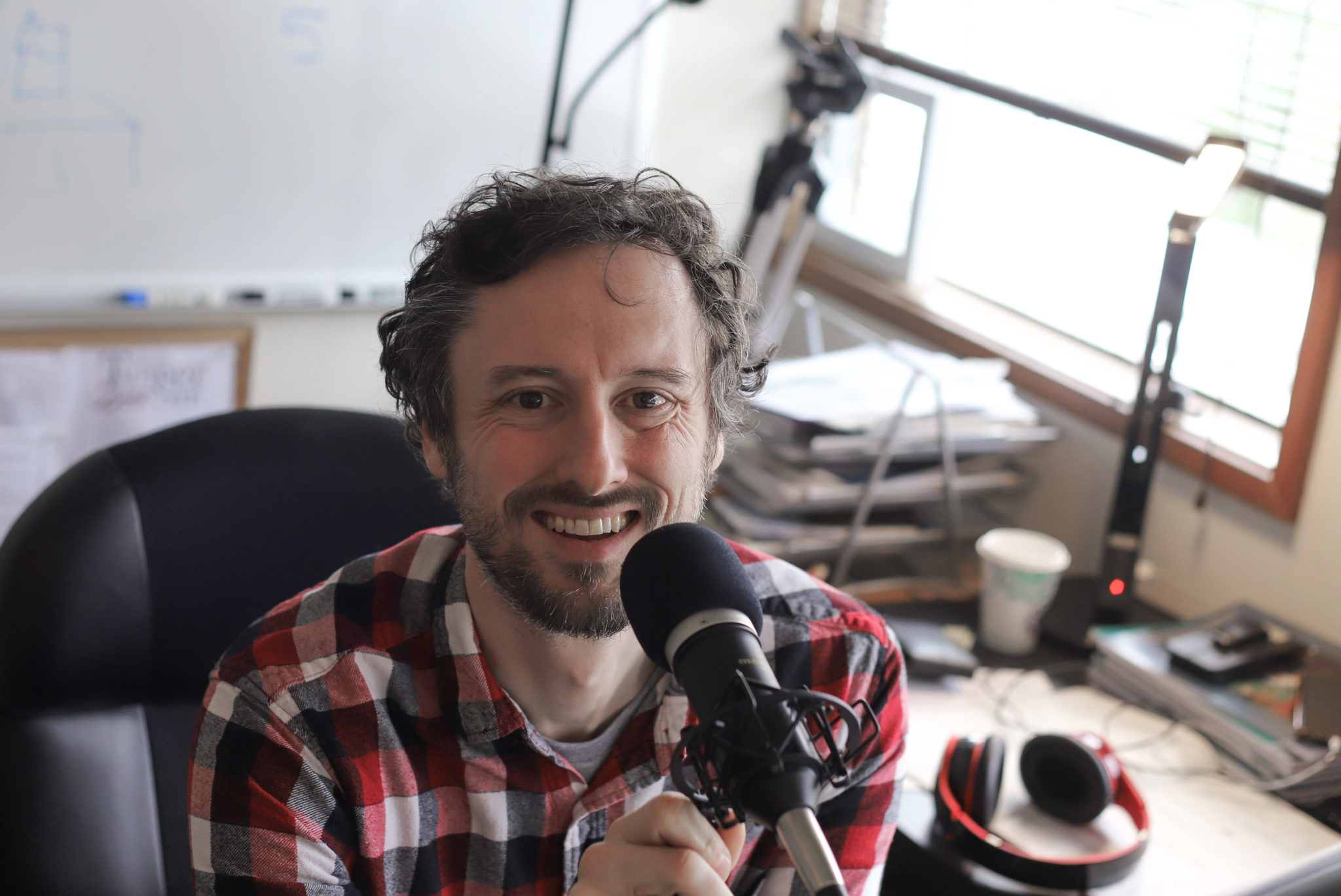above – detail from a commissioned artwork for Westminster Chapel, graphite on paper, 2017. Map drawing of Bellevue area, drawings of handwritten notes from participants who live in the area and were asked to contribute short written meditations on how they love where they live.
From Taking Our Places by Norman Fischer–
“…the most effective form of having “beginner’s mind”. Try engaging in a conversation with no judgement, no preconceptions, no delusions. When someone is speaking with you, just listen! Don’t worry about what you’re going to say afterwards. Don’t offer suggestions or advice. If you feel the need to say something, then repeat what you heard. Listening occurs not just for others, but also to the self. “If my listening is total and deep, if I have entirely let go of myself and the whole world, if my receptive beginner’s mind is perfect, then nothing I hear is ever too great a problem. Everything and anything is workable.”
Why would I want ‘Beginner’s Mind’? What is that, even? In the context of listening, I understand this to simply mean approaching a conversation with openness, curiosity, and humility.
Openness – receive the person speaking just as they are, for who they are.
Curiosity – what might I learn from the speaking person? This miraculous other set of eyes/ears/mouth/mind/heart is sharing themselves with me. To consider the essence of that is fascinating!
Humility – there is no need to fix this person, no need to correct, no need to pass judgement.
To not do these things closes us off to the possibility of presence. We wall off the moment with our minds, which have compartmentalized, categorized, and pre-judged the moment. It is hard to learn and hard to love when we are closed off. It is even harder to build effective relationship. Why would someone trust me if in my mind, I’m observing them from the window of my 30,000 foot ivory tower?
“Everyone wants and needs to be included in the human family, and being included means more than being equal under the law, more than having equal economic and social opportunity. It means being heard, truly heard.”
“Truly heard”. Isn’t this, just this, what we yearn for the most? In my prayers, in my spiritual striving, in my meditation and contemplation – I ultimately just want my life to be heard.
I believe the process of making art can be understood in this context. I make some object, like a drawing or sculpture, and the object listens back to me – the marks, the brushstrokes, the cuts and glues and tapes and bends and folds and creases – this is the object listening to its own making.
Matter and material, being listened into existence.
And the artist then must step back and listen to what is being made – with openness, curiosity, and humility.
If I don’t bring beginner’s mind to my art practice, how can I ever make anything new?
If I don’t bring beginner’s mind to the present moment, how can the moment ever reveal itself to me?
If I don’t bring beginner’s mind to a conversation, how can I ever really know someone?
When we listen to someone who is sharing with us, we are listening that person into being. We allow their story to materialize before our eyes, ears, and heart.
Consider what it means to be “truly heard” – whether you are speaking, listening to someone else speaking, meditating, or making.



